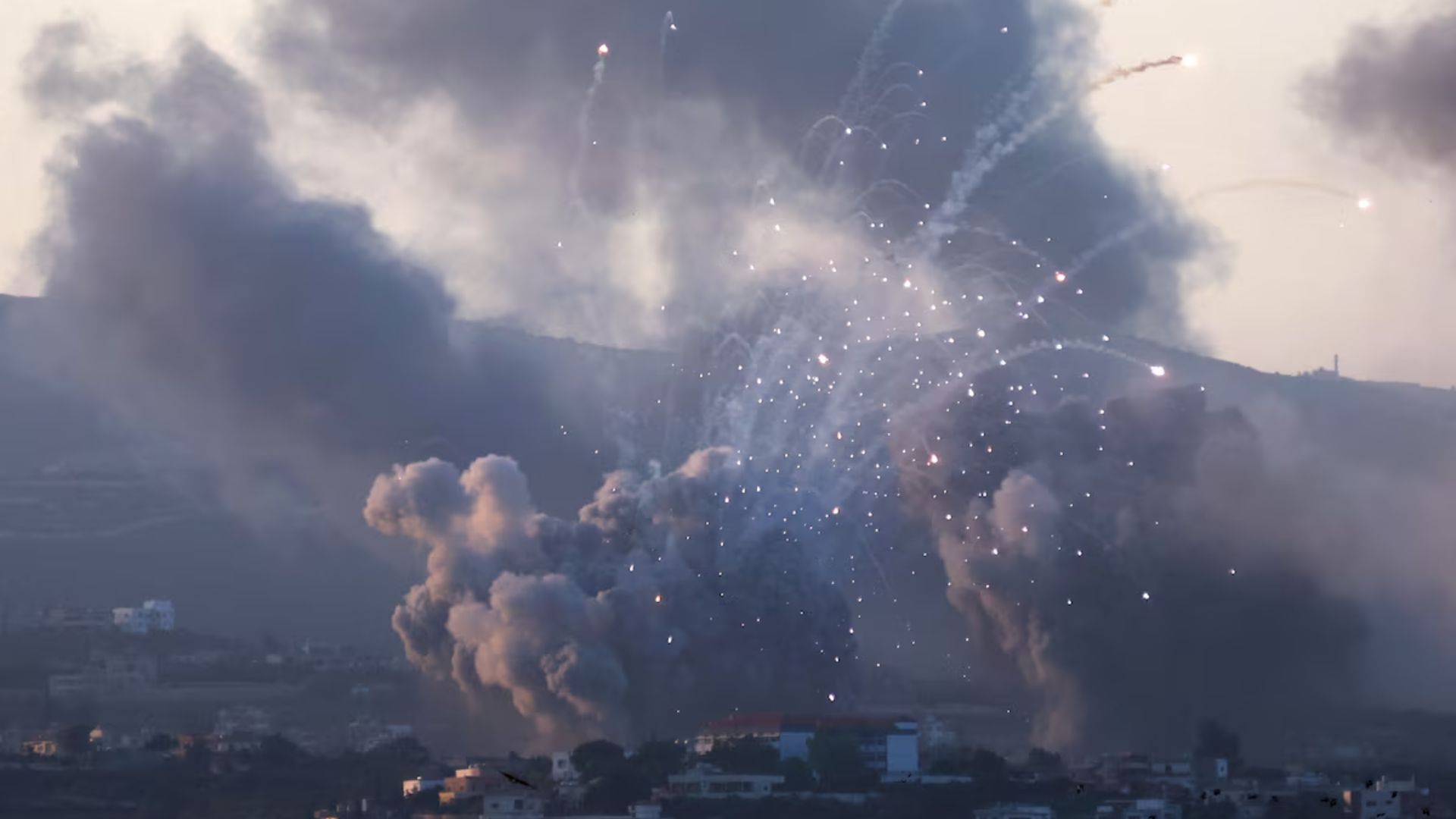Israel intensified its military campaign in Lebanon by launching “targeted ground raids” in southern parts of the country on Monday night, a move that signals a further escalation amid mounting global concerns. The Israel Defense Forces (IDF) confirmed that these raids were based on “precise intelligence” and aimed at Hezbollah’s terrorist targets and infrastructure close to the Israeli border. According to the IDF, these areas posed an immediate threat to Israeli communities in northern regions.
The ground operation comes just days after Israel assassinated Hezbollah leader Hassan Nasrallah, marking one of the most significant blows to the Iran-backed militant group in recent years. Despite calls from the international community for restraint, including appeals from the United States and the European Union, Israel appears to be expanding its military focus to Lebanon as its war against Hamas in Gaza remains at a standstill.
In a statement, the IDF explained that the ground forces involved in the operation were supported by precise air and artillery strikes. This action is part of “Operation Northern Arrows,” a larger campaign Israel has been preparing for over several months. According to the IDF, these operations were approved by Israel’s political leadership, and the military will continue its offensive based on ongoing assessments.
The escalation in Lebanon occurred just hours after U.S. President Joe Biden called for a ceasefire, urging Israel to limit its military actions. While Washington anticipated that Israel might launch a limited ground invasion in Lebanon, it has warned against a prolonged operation that could draw Iran into direct confrontation. Meanwhile, Israeli Defense Minister Yoav Gallant stated earlier in the day that the next phase of the conflict along the southern Lebanon border would begin soon, with the aim of bringing back Israeli citizens displaced by nearly a year of Hezbollah rocket attacks.
Hezbollah, still reeling from the death of its leader, remains a formidable opponent. Its deputy leader, Naim Qassem, stated that the group is prepared for ground combat should Israeli forces advance further into Lebanon.
In recent weeks, Israeli airstrikes have killed several Hezbollah commanders, but they have also resulted in significant civilian casualties. According to the Lebanese government, nearly 1,000 civilians have been killed, and over one million people have been displaced. The Lebanese health ministry reported that in the past 24 hours alone, Israeli strikes in southern Lebanon, the Bekaa Valley, and Beirut had killed 95 people and wounded 172 others.
As tensions escalate, the IDF declared three areas in northern Israel — Metula, Misgav Am, and Kfar Giladi — as “closed military zones,” a clear signal that further ground operations could be on the horizon. In response, Lebanese media reported increased Israeli artillery shelling along the border, heightening fears of an even larger conflict.
To bolster Israel’s defenses, the Pentagon announced that it was deploying additional U.S. troops to the Middle East. The move is intended to deter any potential Iranian retaliation and strengthen the defense of Israel amid growing instability in the region.
Despite international calls for peace, Israel’s military actions in Lebanon continue, and the conflict shows no sign of abating, raising concerns about a broader regional war. The situation remains volatile as the world watches to see how Israel’s dual campaigns in Gaza and Lebanon will unfold.







